The response of Western leaders to the attempt by Vladimir Putin, the Russian President, to annex Crimea and threaten the rest of Ukraine has been hesitant and feeble. This is probably just as well. The supposedly muscular issuing of imprecise and ill-considered threats and ultimatums is how wars start.
If David Cameron has learned from his unwise statements as opposition leader in 2008, so much the better. That was when he suggested, after the Russian invasion of Georgia, that Nato should invite the former Soviet republic to join. That would have put all members of Nato, including the UK, under an obligation to come to Georgia’s aid militarily. That would not have been a good idea, to put it mildly.
Mr Cameron’s words six years ago make surprising reading today. They are at once prophetic and naive. “Russia says it is fighting in defence of Russian citizens in South Ossetia,” he said, referring to the part of Georgia that Russian forces occupy to this day. “Who will they claim to be defending tomorrow? Russians in the Ukraine, Russians in the Baltic states who are already members of the EU and Nato?”
Fortunately, the PM is not so bellicose today. If anything, he has gone too far the other way. Conspicuous in his silence as the crisis in Ukraine escalated, he spoke to Mr Putin on Friday but the public talking was left to Barack Obama, who warned vaguely that there “will be costs” if Russia violated Ukrainian sovereignty – even as Mr Putin’s forces were doing precisely that.
As Rodric Braithwaite, ex-UK ambassador to Moscow, writes in The Independent on Sunday, the burden of a diplomatic response “will probably fall on the Germans, the Poles and the French, since the Americans are being ineffective on the sidelines, and the British seem to have given up doing foreign policy altogether”.
So far, the British contribution has been to be the first to call for yesterday’s meeting of the United Nations Security Council. This was not an insignificant session of jaw-jaw: it will have embarrassed Mr Putin for Russia to have to rely on its veto to avoid a resolution of condemnation.
Such diplomatic pressure is the only weapon the international community should use for now. It may not sound particularly forceful or brave of William Hague, the Foreign Secretary, to summon the Russian ambassador and to urge on him the “de-escalation of tensions in Ukraine”. But these are the only sensible measures that can be taken. Over time, they will put meaningful pressure on Mr Putin. There can be no question, for example, of the G8 meeting going ahead in Sochi in June if Russian troops are still in Ukraine then.
The temptation for leaders is always to avoid being accused of “standing idly by”; to suggest that there are lines that should not be crossed or actions that would be in some way “unacceptable”. Deterrence can be the right policy, but it requires real, sustained thought first. President Obama’s hasty “red lines” in Syria were just one example of non-credible (and therefore ignored) deterrence. He got away with that because agreement was reached on Syria’s chemical weapons, but enough wars have been started by accident for the lesson to merit constant repetition.
The Independent on Sunday is not opposed to all wars, regardless of fashionable talk of living in a “post-interventionist” world. We, like President Obama, are opposed to dumb wars. War with Russia would be a dumb war to end all dumb wars.

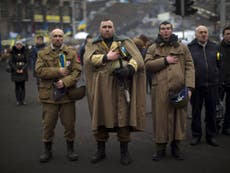
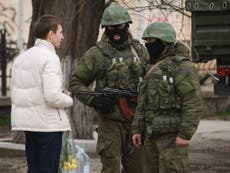
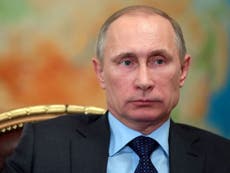
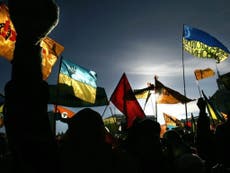
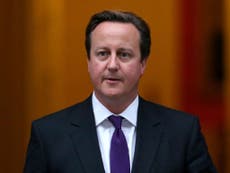
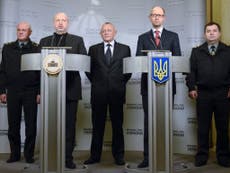
Join our commenting forum
Join thought-provoking conversations, follow other Independent readers and see their replies